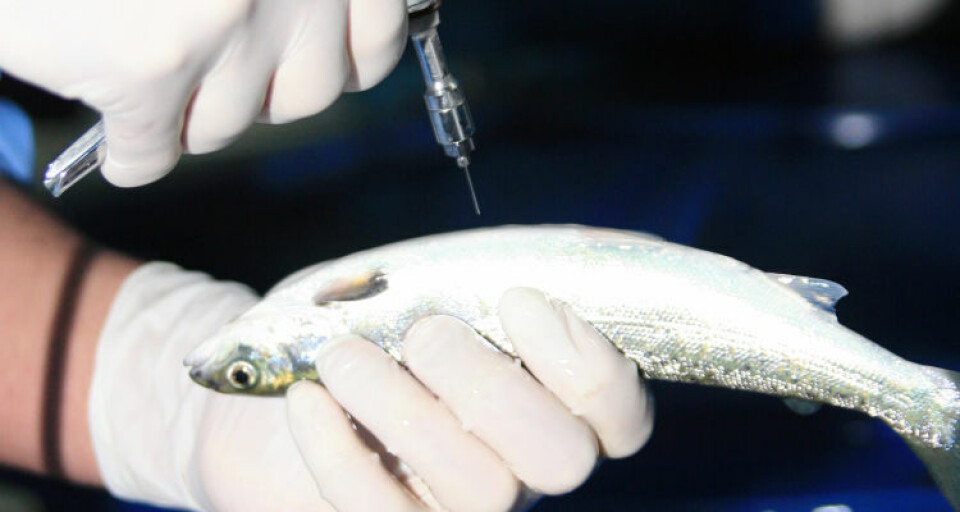
New prototypes of SRS vaccine developed
Scientists in Chile have developed candidates for prototypes of a vaccine against Piscirickettsia salmonis, commonly known as SRS.
It is the latest achievement of Dr Alejandro Yáñez and colleagues at the Austral University of Chile (UACh), who have over the years developed culture media and antigens for diagnostic tests for SRS.
The disease is a particular problem in Chile, where the lack of a vaccine has led farmers to use far more antibiotics than in other salmon producing countries.
Yáñez told Fish Farming Expert’s Chilean sister site, Salmonexpert, that he expects in the near future to be able to generate prototypes of a medium-scale vaccine for SRS, using candidates that in tests for intraperitoneal infection have shown excellent protection (measured by RPS90 – see panel, right), and with results much higher than those obtained from commercial vaccines based on bacterins.
Adding toxins
“The problem with vaccines that have live / inactivated bacteria (bacterins), is that you are also adding the toxins of the bacteria, which generates a cytotoxic effect that prevents high [enough] concentrations of this to achieve an adequate immune response. This is compounded by the fact that proteins that induce immunosuppression at the time of injection are also included,” explained Yáñez regarding the problem with vaccines available in the market.
It was thus decided to go to the genome of P. salmonis to find a new vaccination system that was innovative and effective.
Analysing all the genes common to the different strains of P. salmonis (the core genome), researchers identified a set of proteins with which they created three prototypes of vaccines for testing.

Immune response
Yáñez pointed out that the prototypes had very good results and also corroborated that the candidates not only stimulate the innate immune response of the fish, but also the adaptive immune response.
“By analysing the P65 and IKB-α proteins we corroborated that our vaccines do not produce immunosuppression and that the three prototypes managed to raise the innate response,” said the researcher. “Then, by measuring the specific IgM antibody titers against P. salmonis, we discovered that only one of the prototypes also stimulated the adaptive immune response, producing a specific antibody that allowed effective protection.
“With this vaccine we showed a final point mortality (RPS 90%) with 88.5% protection. We believe that the protection will be maintained over time and that is what we hope to test in the near future.”
Better than a bacterin
The prototype with better results showed significantly less mortality than a commercial bacterin used as control, and also, a later mortality, five to six days after the control.
Yáñez hopes that during 2019 the researchers can request permits from the authorities so that in collaboration with salmon farming companies, they can develop field tests that can generate natural challenges in fish immunised with this prototype, both in Atlantic salmon and in trout.
The prototype of the vaccine is currently at the stage of scaling up production, which constitutes a great challenge in this enterprise / research integration carried out in the Faculty of Sciences of the UACh.
Yáñez has also submitted new applications for projects for SRS and BKD, a disease caused by Renibacterium salmoniraum, which he hopes will allow him to generate relevant advances applicable to salmon farming, an industry that is determined to strongly reduce the use of antibiotics in Chile.























































